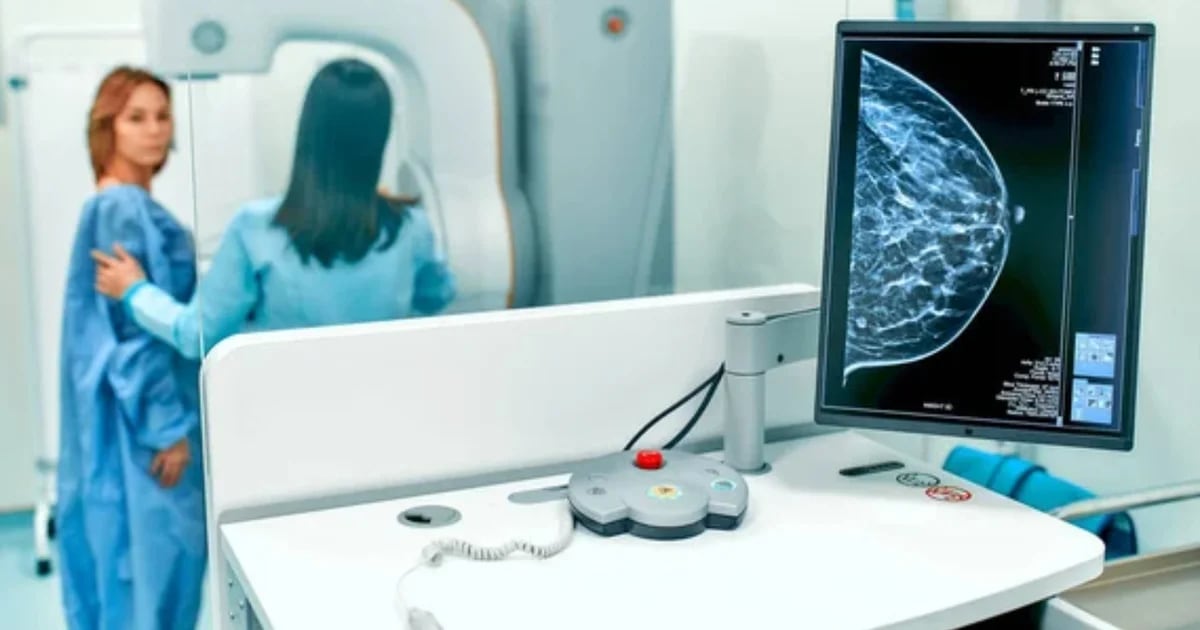






In some women What have they had breast cancer And they have received treatment, the disease can reappear. It is known as recurrent breast cancer And it occurs because some tumor cells have eluded the initial and survived treatment. That is, after not being detected, they multiply and They go on to form another tumor.
Faced with that risk, in the United Kingdoma group of scientists Develop a new blood test – a type of liquid biopsy – that could predict the risk of breast cancer reappearance Three years before tumors appear in the explorations.
The test results with the test were presented at the annual meeting of the American Society of Clinical Oncology which was made in Chicago, USA. Its proponents suggest that, if benefits are confirmed, the use of the blood test could help reveal which women need preventive therapy and which patients may not receive it.
It is estimated that with initial combination treatment, there is a 3% to 15% chance that breast cancer will return within 10 years, depending on the Cleveland Clinic from United States. If that happens, it is usually in a more advanced phase.

The new personalized liquid biopsy, being developed in the United Kingdom, could soon warn about the risk of cancer coming back, as it detects tiny amounts of tumor DNA in the bloodstream.
According to researchers, trial results show that it is so sensitive that it can accurately predict the risk of cancer coming back, months or even years before the usual signs or symptoms begin to appear.
Researchers at the research center Breast Cancer Now Toby Robins De London were able to identify all the patients of the trial that they fell later. The average time elapsed until relapse was 15 months. The longest was 41 months.
The first author of the research, Isaac García-Murillas, which is part of the Molecular Oncology Group at the London Cancer Research Institute, said in a statement: “Breast cancer cells can remain in the body after surgery and other treatments, but there may be so few that they cannot detected on follow-up scans. These cells can cause relapses many years after the initial treatment. ”

Ultrasensitive blood tests “could offer a better method for long-term follow-up of patients whose cancer is at high risk of recurrence,” he said.
“Most custom liquid biopsies currently use whole exome sequencing to identify mutations. But this approach goes a step further and uses whole genome sequencing to identify up to 1,800 mutations in a patient’s tumor DNA that could uniquely identify the patient’s cancer recurrence from a blood sample,” García said. -Murillas.
At the same time, he highlighted that, if a more sensitive test is available, it could be very important for this group of patients with early breast cancer, since they usually have a very low amount of cancerous DNA in their blood.

“This retrospective proof-of-principle study lays the foundation for better post-treatment follow-up and a treatment that could prolong patients’ lives,” said the researcher.
While, Simon Vincentdirector of research at Breast Cancer Now, which helped fund the trial, clarified: “Although this research is still in its early stages, detecting breast cancer recurrence earlier means that treatment is much more likely to destroy the cancer.” and prevent it from extending to other parts of the body, at which time it becomes incurable. ”
Experts expect the findings to give rise to a strategy that allows you to start treatment much earlier. Ultrasensible liquid biopsy detects circulating tumor DNA that cancer cells release in the bloodstream.

Previous research has suggested that blood tests of circulating tumor DNA can identify relapse before it can be seen on a scan.
However, these tests often use a technique called the full exom sequencing that usually looks between 16 and 50 mutations. Instead, the new test – introduced in the United States – uses whole genome sequencing and looks for 1,800 mutations, making it much more sensitive.
The researchers analyzed the blood of 78 patients with different types of breast cancer. The liquid biopsy correctly detected a high risk of recurrence in the 11 patients who relapsed during the five years of the trial. The 60 women in whom the test did not detect circulating tumor DNA did not relapse, meaning there were no false negatives either.
In three more patients, circulating DNA was detected once, but subsequent tests showed that it had disappeared.

In dialogue with Infobae, Adriana DeSierviConicet researcher, who also develops a type of liquid biopsy for early cancer detection Oncoliq, He said that the test by the researchers who are in the United Kingdom is “an interesting piece of research. It hasn’t left the lab yet, which may make the findings not reproducible in large populations. But as research work it is good”
“I could detect when cancer returns after a few years of treatment. However, it has not been demonstrated that it is effective in detecting when the tumor is very small,” commented the researcher, who is director of the Laboratory of Molecular Oncology and New Therapeutic Targets of the Institute of Biology and Experimental Medicine (IBYME) of CONICET.
The Argentine scientist, with Marina Simian and other collaborators, also presented the results of the Oncoliq test, which is already patented in the United States and allows breast cancer to be detected in blood samples very early, since it analyzes MicroRNA in blood .

